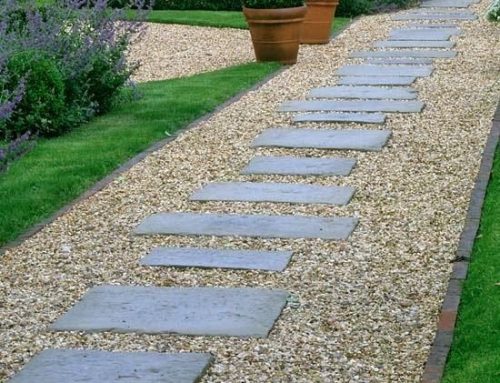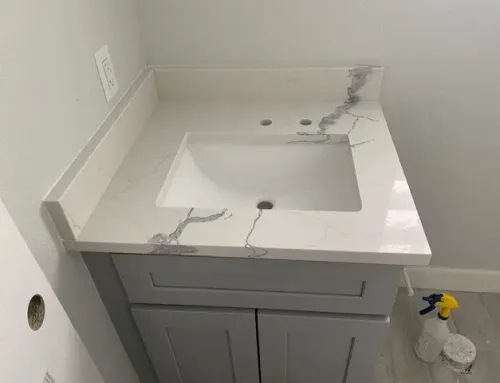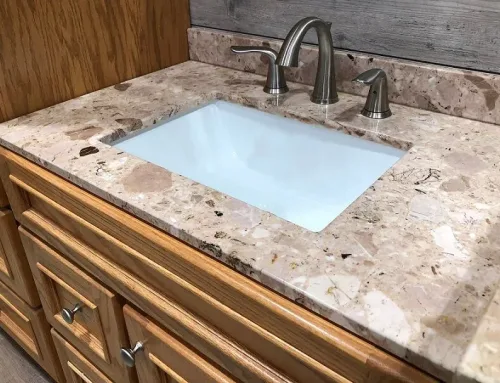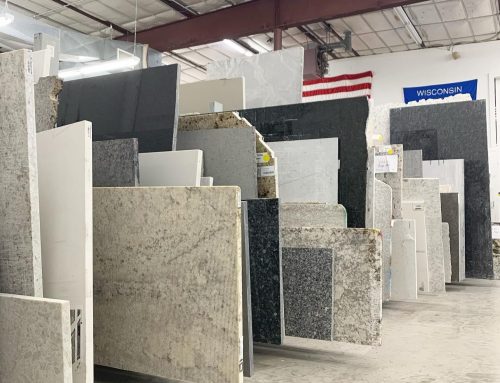What is the best material for kitchen countertops? Choosing the best material for kitchen countertops is a crucial decision that impacts not only the aesthetic appeal of your space but also its functionality and durability. With various options available, selecting the right one depends on your lifestyle, budget, and design preferences. Below, we explore some of the most popular natural stone countertop materials to help you make an informed choice.
1. Quartz: The Low-Maintenance Champion
Quartz is one of the most sought-after materials for kitchen countertops due to its durability, non-porous nature, and low maintenance. Made from engineered stone, quartz countertops resist stains, scratches, and bacteria, making them ideal for busy kitchens. They come in a variety of colors and patterns, often mimicking the look of natural stone.
Pros:
- Highly durable and scratch-resistant
- Non-porous and stain-resistant
- Wide range of colors and patterns
- No sealing required
Cons:
- Can be expensive
- Not as heat-resistant as natural stone
2. Granite: The Classic Choice
Granite remains a top contender for homeowners who want a natural and luxurious look. Each slab is unique, adding character to any kitchen. It is heat-resistant and durable but requires periodic sealing to prevent stains and bacteria buildup.
Pros:
- Natural beauty with unique patterns
- Heat-resistant and durable
- Adds value to your home
Cons:
- Requires sealing to prevent stains
- Can be expensive, depending on rarity
3. Marble: The Elegant Statement
Marble countertops exude elegance and timeless appeal, making them a favorite for upscale kitchens. However, marble is more porous than granite and quartz, meaning it stains easily and requires frequent sealing.
Pros:
- Luxurious and unique veining
- Heat-resistant
- Adds value to your home
Cons:
- Prone to scratches and stains
- Requires high maintenance
4. Quartzite: The Natural Alternative to Quartz
Quartzite is a natural stone that offers the beauty of marble but with greater durability. It is highly resistant to heat and scratches, though it still requires sealing to prevent staining.
Pros:
- Natural and elegant look
- Heat-resistant and durable
- Less maintenance than marble
Cons:
- Requires sealing
- Can be costly
5. Soapstone: The Soft but Sturdy Option
Soapstone is a unique, natural stone with a soft, smooth texture. While it is not as hard as granite, it is highly resistant to stains and bacteria, making it an excellent choice for rustic or farmhouse-style kitchens.
Pros:
- Naturally stain-resistant
- Develops a beautiful patina over time
- Heat-resistant
Cons:
- Softer material, prone to scratches and dents
- Requires periodic oiling for maintenance
6. Porcelain: The Modern Contender
Porcelain slabs are gaining popularity for their durability, stain resistance, and modern appeal. They are lightweight and available in large formats, reducing the need for seams.
Pros:
- Extremely durable and scratch-resistant
- UV-resistant, making it great for outdoor kitchens
- Non-porous and easy to clean
Cons:
- Can be expensive
- Limited thickness options
Final Verdict: Which Countertop Material is Best?
So what is the best material for kitchen countertops? The best material for your kitchen countertop depends on your priorities. If you want low maintenance and durability, quartz is an excellent choice. For natural beauty and heat resistance, granite or quartzite are ideal. If elegance is your top priority, marble can be stunning. For a unique and modern look, porcelain is a great option.
By considering your budget, lifestyle, and design preferences, you can select the best natural stone countertop material that enhances both the function and aesthetics of your kitchen.





